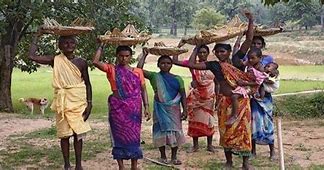New Delhi: In a pioneering step, the Ministry of Women and Child Development has launched the Anganwadi cum Crèche (AWCC) initiative under the Palna scheme, aiming to provide formalized childcare services across the country. This innovative approach addresses the pressing need for quality daycare services for children aged 6 months to 6 years, particularly benefiting working mothers from all socioeconomic backgrounds.
The crèche services, provided through AWCCs, mark a significant shift by formalizing childcare responsibilities traditionally considered domestic work. This initiative aligns with the government’s broader goals of empowering women through education, skilling, and employment opportunities, and contributes to the United Nations Sustainable Development Goal 8—promoting decent work and economic growth.
Addressing Modern Family Challenges
With increased industrialization, urbanization, and the rise of nuclear families, many working women face challenges in securing reliable childcare. Historically, joint families supported working mothers, but with changing societal structures, the absence of quality daycare often deters women from pursuing gainful employment.
The Palna component of AWCC aims to bridge this gap by offering a safe and secure environment for children. Beyond daycare, AWCCs provide nutritional support, growth monitoring, immunization, and health and cognitive development programs. These services are available to all mothers, regardless of their employment status, thereby fostering inclusivity.
Boosting Women’s Workforce Participation
The Anganwadi cum Crèche initiative is expected to significantly enhance women’s workforce participation by alleviating the burden of unpaid childcare responsibilities. This empowerment enables mothers to pursue employment opportunities, contributing to their financial independence and the broader economy.
Anganwadi centers, already the world’s largest childcare network, are now evolving to provide extended services under AWCCs. By ensuring whole-day childcare support, this initiative strengthens the role of Anganwadis in delivering last-mile care.
Nationwide Implementation
As of now, 10,609 AWCCs have been approved based on proposals from various states and Union Territories. For instance, the State Government of West Bengal has received approval for 10 AWCCs, although their operationalization is pending. State governments are also required to contribute their share toward the scheme’s implementation.
Minister of State for Women and Child Development, Smt. Savitri Thakur, emphasized the importance of this initiative in her recent address to the Lok Sabha. She highlighted how AWCCs can ensure holistic childcare while enabling mothers to contribute to the economy without compromising their children’s welfare.
The AWCC initiative represents a milestone in childcare and women’s empowerment, providing a blueprint for addressing the evolving needs of Indian families. With its inclusive approach and potential to strengthen the economy, the program holds promise for a more equitable future.












